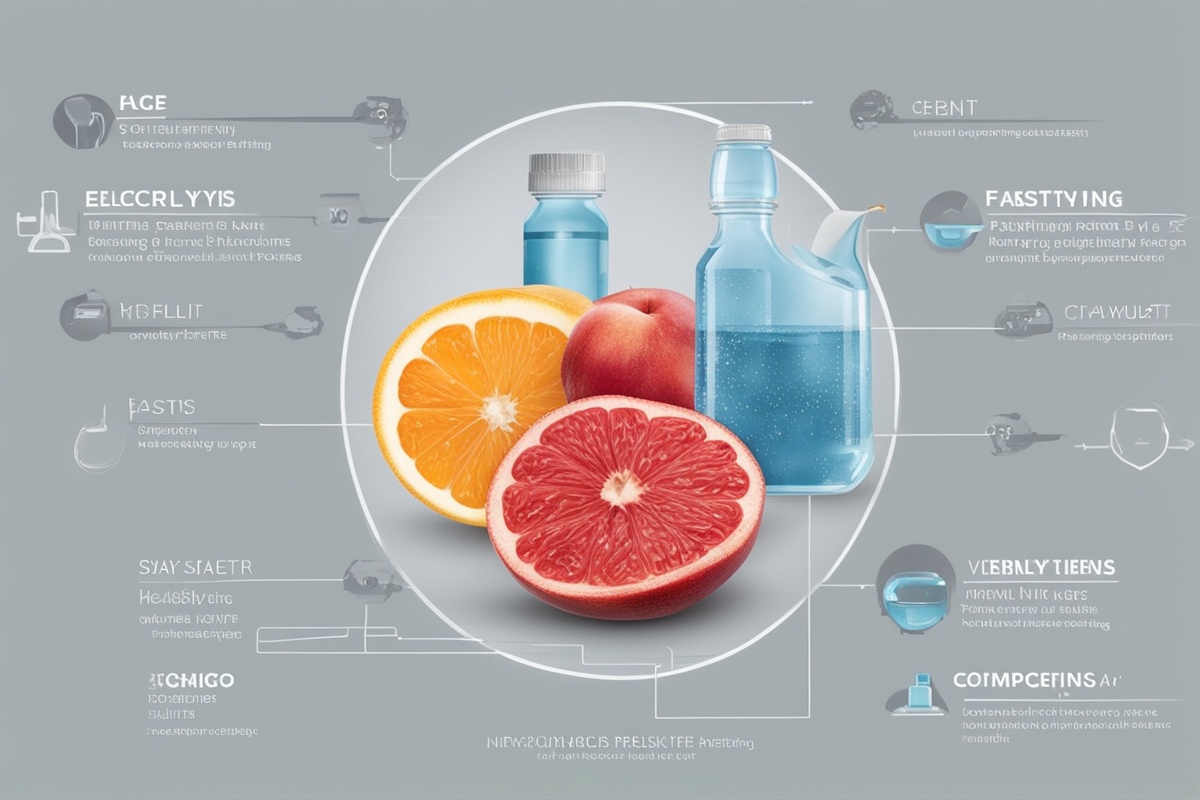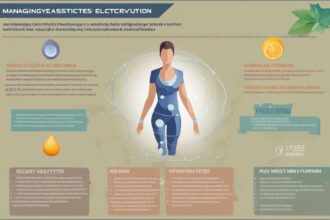Fasting, whether for religious, health, or weight loss reasons, is a practice that requires careful attention to the body’s needs, especially when it comes to hydration and electrolyte balance. Maintaining proper hydration during fasting can be challenging since food and water intake are often restricted for extended periods. In this comprehensive guide, we’ll explore the importance of balancing hydration during fasting, focusing on the role of electrolytes, practical tips to stay hydrated, and how to avoid common pitfalls. Let’s dive into the essential strategies for supporting your body during fasting periods.
The Importance of Hydration During Fasting
When fasting, the body is deprived of its usual sources of water and nutrients, which can lead to dehydration if not managed properly. Hydration is critical for maintaining bodily functions such as temperature regulation, digestion, and circulation. Without adequate water intake during non-fasting hours (if permitted), or without proper preparation, fasting individuals may experience symptoms like fatigue, dizziness, and headaches. Electrolytes—minerals like sodium, potassium, and magnesium—play a pivotal role in maintaining fluid balance in the body. During fasting, the loss of electrolytes through sweat and urine can exacerbate dehydration risks, making it vital to focus on balancing hydration during fasting.
Understanding Electrolytes and Their Role in Hydration
Electrolytes are charged minerals that help regulate nerve and muscle function, maintain acid-base balance, and control fluid levels in the body. Key electrolytes include sodium, potassium, chloride, calcium, and magnesium. During fasting, the body may experience a drop in electrolyte levels due to reduced food intake and potential water loss. This imbalance can lead to symptoms such as muscle cramps, irritability, and even more severe conditions like hyponatremia (low sodium levels). To prevent these issues, it’s essential to replenish electrolytes during non-fasting windows or through strategic hydration practices. For more on the science of electrolytes, check out our detailed guide on Electrolytes 101.
Challenges of Balancing Hydration During Fasting
Fasting often means abstaining from food and drink for specific periods, which can make hydration challenging. For example, during Ramadan, Muslims fast from dawn to sunset, refraining from both food and water. Similarly, intermittent fasting protocols like the 16:8 method limit eating windows, potentially reducing opportunities for adequate fluid intake. Dehydration risks are heightened during hot weather or intense physical activity, as the body loses water and electrolytes through sweat. Additionally, the absence of water-rich foods like fruits and vegetables during fasting hours can further contribute to fluid deficits. Recognizing these challenges is the first step to addressing them effectively.
Practical Tips for Staying Hydrated While Fasting
Balancing hydration during fasting requires intentional planning and smart choices during non-fasting hours. Here are some actionable tips to help you stay hydrated:
- Hydrate Early and Late: If your fasting protocol allows water intake during certain hours (e.g., before dawn and after sunset), prioritize drinking plenty of fluids during those windows. Aim for at least 8–10 glasses of water daily, adjusting based on activity level and climate.
- Choose Electrolyte-Rich Drinks: Plain water is essential, but it doesn’t replenish lost electrolytes. Consider adding a pinch of salt to your water or sipping on coconut water, which is naturally rich in potassium and other minerals. Learn more about natural electrolyte sources in our post on Natural Electrolyte Drinks.
- Eat Hydrating Foods: During eating windows, focus on water-rich foods like watermelon, cucumber, oranges, and celery. These foods not only provide hydration but also supply essential vitamins and minerals.
- Avoid Dehydrating Substances: Limit caffeine and sugary drinks during non-fasting hours, as they can act as diuretics and increase fluid loss.
Supplements and Solutions for Electrolyte Balance
For those who struggle to maintain electrolyte levels through diet alone, supplements can be a helpful tool. Electrolyte powders or tablets, which can be dissolved in water, provide a convenient way to restore sodium, potassium, and magnesium. Look for products with minimal added sugars and artificial ingredients to avoid unnecessary calorie intake during fasting. Additionally, homemade electrolyte solutions—made with water, a pinch of salt, a squeeze of lemon, and a teaspoon of honey—can be an effective and budget-friendly option. Always consult a healthcare professional before starting any supplement regimen, especially if you have underlying health conditions. For a deeper dive into electrolyte supplements, read our article on Best Electrolyte Supplements.
Warning Signs of Dehydration and Electrolyte Imbalance
While fasting, it’s crucial to listen to your body and recognize the signs of dehydration or electrolyte imbalance. Common symptoms include dry mouth, excessive thirst, dark-colored urine, fatigue, dizziness, and muscle cramps. More severe signs, such as confusion, rapid heartbeat, or fainting, require immediate medical attention. If you experience any of these symptoms, consider breaking your fast to rehydrate and seek medical advice if necessary. Staying proactive by following hydration strategies can help prevent these issues. For more information on recognizing dehydration, explore our guide on Dehydration Symptoms and Prevention.
Disclaimer: The information provided in this article is for educational purposes only and should not be considered medical advice. Fasting and hydration practices can vary based on individual health conditions, and improper management may lead to health risks. Always consult with a healthcare professional or dietitian before making significant changes to your diet or fasting routine, especially if you have pre-existing medical conditions or are on medication.
References
- Mayo Clinic – Dehydration Symptoms and Causes
- Harvard Health – The Importance of Hydration
- National Institutes of Health – Electrolytes and Fluid Balance
- World Health Organization – Dehydration Fact Sheet
- Centers for Disease Control and Prevention – Water and Nutrition
This content is for informational purposes only and not a substitute for professional advice.






